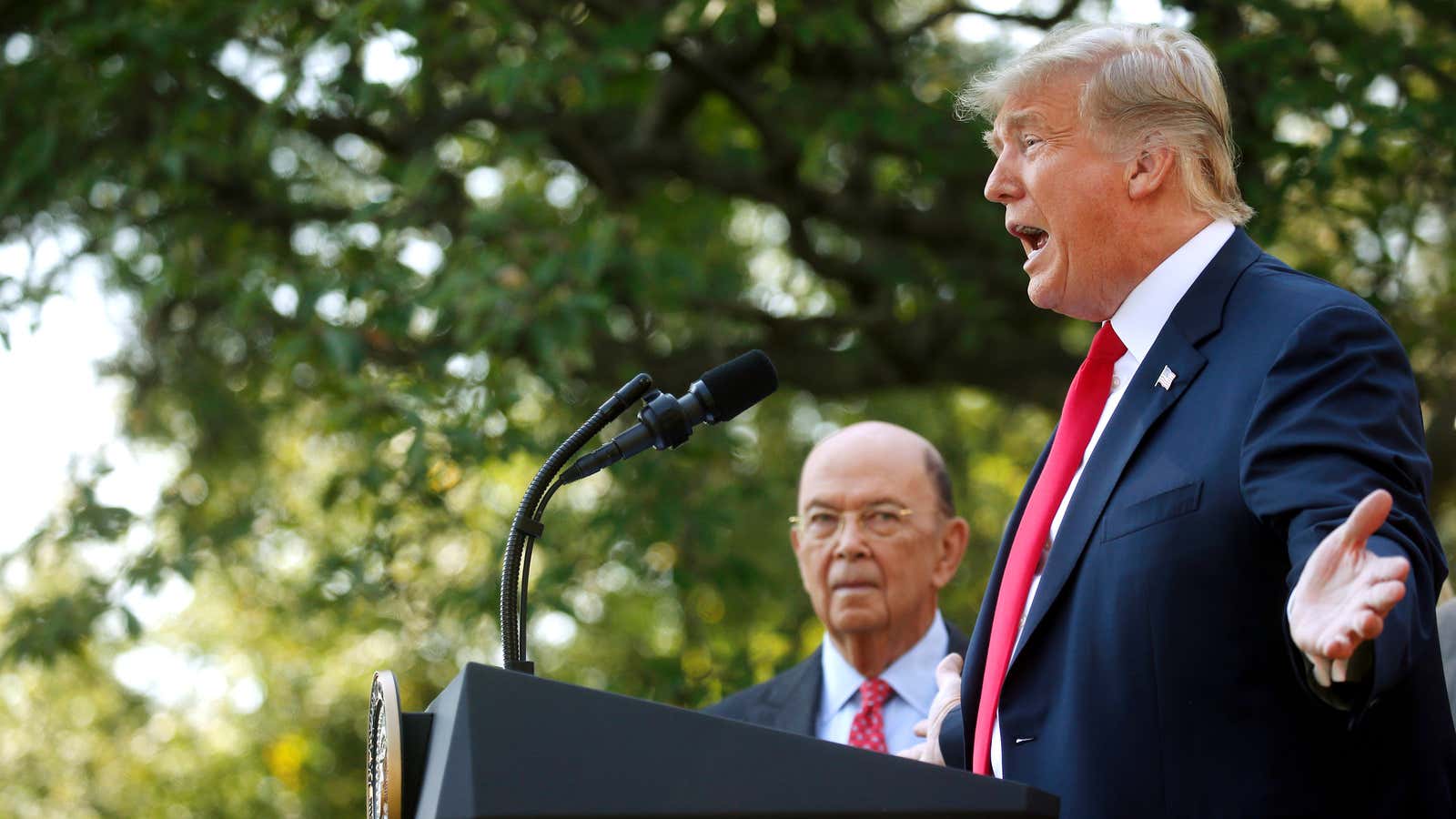The last time the US was embroiled in trade talks, much of the heat came from a tussle over investor-state dispute settlement, or ISDS. These rules allow corporations to bring legal challenges against states in courts governed by international arbitrators, not local law.
Advocates of ISDS say the rules help bring investment to emerging markets. That is because foreign investors know they will have recourse if local laws change or nationalization threatens their capital. But critics point out that multinational corporations often abuse these provisions, most notably in the case of cigarette makers fighting against public health regulations.
The new NAFTA, known as USMCA, appears to be a win for those critics. It eliminates ISDS rules with Canada and restricts them to only a handful of capital-intensive industries with Mexico.
It’s a victory that will likely have little impact beyond North America. As Trump wages his trade wars, the European Union and others are already far along in settling the ISDS controversy for the rest of the world. Their solution may bring new problems.
ISDS: the bad
In 2015, ISDS came to symbolize everything wrong with international trade and the power of global corporations over workers.
Elizabeth Warren, an influential senator and likely 2020 presidential candidate, vociferously opposed the ISDS provisions while the US was negotiating the Trans-Pacific Partnership. She argued that they might be used to overturn US law; thus far, the US has never lost an ISDS case. Still, fears of lost US sovereignty also resonate on the right.
But trade negotiators in emerging market countries see them as must-haves to attract foreign investment, often a key motivation to sign onto a free trade deal with the United States or other advanced economy.
“There’s no real evidence that signing these treaties helps bring in more foreign investment than they would have gotten otherwise, but a lot of foreign capitals believe that’s true,” Todd Tucker, a political scientist whose book “Judge Knot” on ISDS was published this year.
To get around this conundrum, president Barack Obama’s TPP negotiating team carved out a public health exemption to protect countries from tobacco companies, if not investor challenges overall. The compromise failed to appease critics like Warren on the left, even as other conditions in the treaty left stakeholders, from automakers and unions to drugmakers and environmental groups, dissatisfied. US participation in TPP collapsed ahead of the 2016 presidential election, and the remaining eleven countries have signed up with the ISDS provisions intact.
ISDS: the good
Trump’s decision to limit ISDS rights to a sliver of players—”the Koch brothers,” as Tucker puts it, jokingly referring to the energy, infrastructure and telecommunications sectors that remain covered—represents a significant reversal from previous US policy. But it doesn’t address one of the biggest criticisms against ISDS: its unequal treatment of labor and environmental groups.
Tucker argues that the way to level the trade playing field is by allowing those groups to use the same dispute tools available to multinational corporations.
“Instead of pushing companies down, let’s raise labor and environmental groups up to the same level,” Tucker says. “Investors want to keep these rights and there is a growing criticism of them. It’s a good time to say, the price of you keeping these rights is letting other groups be on equal footing.”
With the US negotiators using apocalyptic rhetoric to win minor trade concessions, he’s not expecting a big effort to push the world in that direction, though. And Trump’s reduction of ISDS provisions in USMCA could be only temporary if US corporations continue to push toward joining a version of the TPP.
Meanwhile, the European Union is pushing a plan for a Multilateral Investment Court to formalize international arbitration, currently governed by more than 3,000 treaties, in an institution with tenured judges. Tucker is afraid such a body could set bad precedents in stone, while not addressing the need for more equality between corporate investors and labor or environmental groups. But the mooted EU-Canada free trade treaty could formalize it before the US even settles on an alternative.
“If you have a domestic left wing criticizing you for signing these things, but you think they are important for providing capital, you need to find a middle ground, and the EU is providing it right now,” he says.
